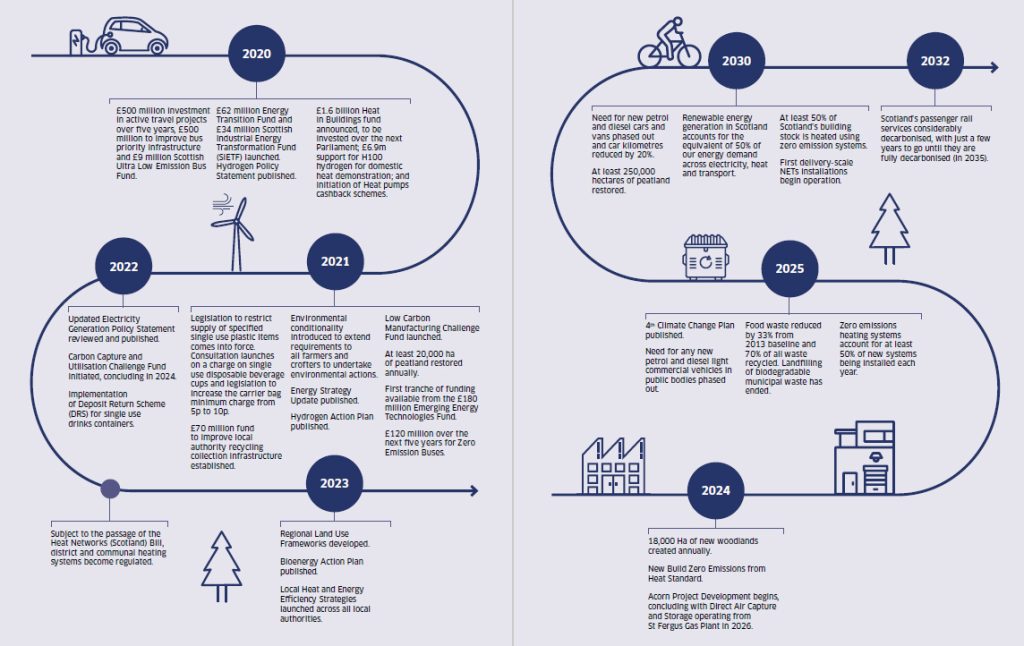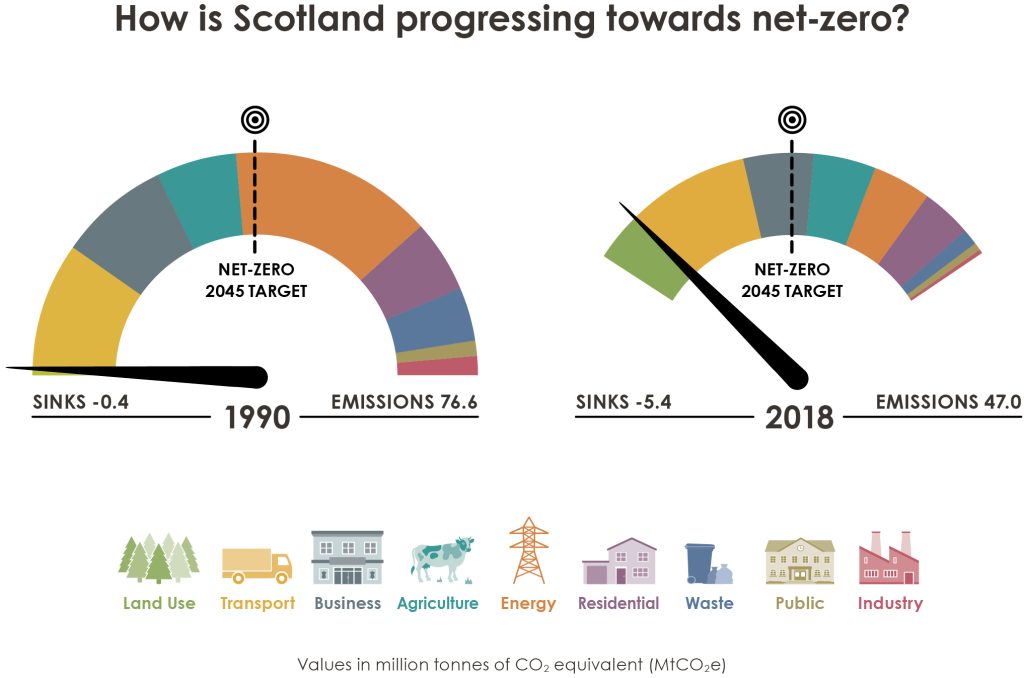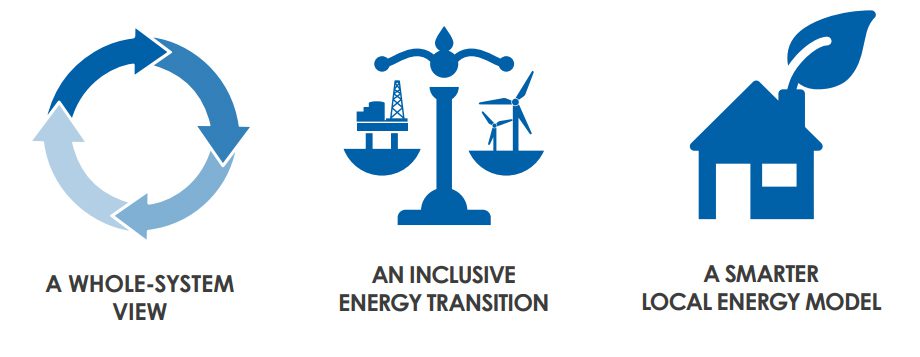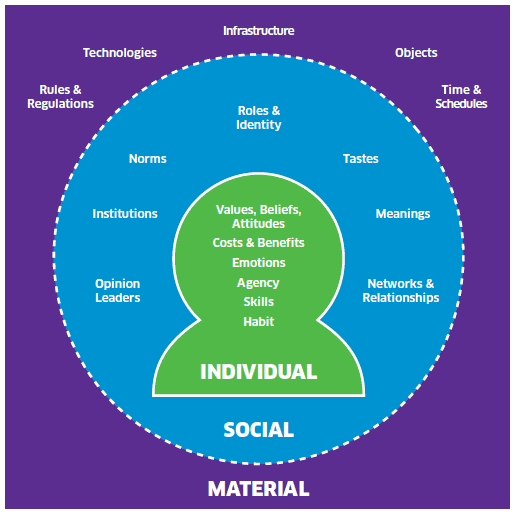What Works?
What works in delivering Scotland’s climate change ambitions?
The Challenge
Scotland has a reputation as a climate change leader, working towards net-zero emissions by 2045 – five years ahead of the rest of the UK.
To date, a significant proportion of the emissions reduction is a result of significant increase in the use of renewable electricity. These changes in the electricity system have been the “easy” part of the climate change response.
Over the coming 10 years the Scottish Government is aiming for radical improvements in the energy efficiency of buildings; phasing out the sale of new petrol and diesel cars; and increasing the ownership of the energy system by local communities; whilst also retaining a secure, resilient energy system.
In its Climate Change Plan update published in December 2020, the Scottish Government sets out a routemap to 2032:

See a larger version of this routemap on pages 17 and 18 here
At the same time as we need to drastically cut our emissions, the impacts of climate change will become more evident. While communities, organisations and businesses increasingly respond to current and future climate risks through building the business case for action and developing effective adaptation plans, we need to see a step change in cross sector action that delivers a ‘climate ready Scotland’.
- Effective climate change policies
- Whole system approach
- Public engagement
- Social transition and behaviour change
Effective climate change policies
How do we know which different policy options will deliver? There is a particular pressure on climate change policies to deliver results on a short timescale.
Emission reductions in Scotland’s electricity sector have been relatively ‘easy’ with large cuts resulting from a shift in how we generate electricity, now largely based on renewables.

Read more about Scotland’s progress to net-zero in our blog
Whole system approach
The Scottish Government has adopted a ‘whole system’ approach for its Climate Change Plan and Energy Strategy, across all parts of society and the economy.
This puts the emphasis on coordinating the approach across all policy areas.
The core principles in Scotland’s Energy Strategy are:

Public engagement
It is a key democratic right and responsibility to be part of decision making processes – locally and nationally.
However, traditional consultations may not deliver outcomes that people see as fair and representative. What methods would deliver better results when making decisions on contentious issues?
Scotland has, like several other countries, held a Citizens Assembly on climate change. Read more about the work of the Assembly
The Scottish Government has also set out three principles for public engagement in ‘Net Zero Nation
Draft Public Engagement Strategy for Climate Change’:
- People are aware of the action the Scottish Government is taking to address climate change and how it relates to their lives.
- People actively participate in shaping fair and inclusive policies that encourage adaptation to and mitigation of climate change.
- Taking action on climate change is normalised and encouraged in communities and places across Scotland.
Read Net Zero Nation: Draft Public Engagement Strategy for Climate Change
Social transitions and behaviour change
Reducing the impacts of our everyday behaviours across energy use, travel, consumption and waste are central to addressing climate change.
The Scottish Government developed a framework for thinking about how policy affects our daily behaviours – the so-called ISM tool :

Whilst it is useful to think – and design policies – in terms of how interventions affect individual behaviours, researchers and government are increasingly focusing on how we can achieve low carbon transformations at the level of society as a whole.
This is inevitably a more complex challenge than just seeking to nudge individuals’ behaviours along, and involves taking a systems approach and working across sectors and communities.
Read about What Works Scotland
Read about how policy is monitored in the National Performance Framework
Our Response
We work on innovative approaches and developing evaluation methods. We open up spaces to develop and test new ways of doing ‘joined up policy making’ and working across sectors.
- Effective climate change policies
- Whole system approach
- Public engagement
- Social transitions and behaviour change
Effective climate change policies
To be effective, climate change policies need to strike a balance between stability to allow stakeholders to adapt and respond, and change in light of new evidence and changing circumstances. Our research includes policy assessments and developing evaluation procedures.
Featured Projects
Whole system approach
We help facilitate research and debate about what a whole system approach involves and how it should be developed, among researchers, policy makers and practitioners across sectors.
Featured Projects
Public engagement
We support the Scottish Government in testing methods to design more inclusive decision making processes. This is not a particular challenge for climate change, and we work with colleagues from a range of disciplines.
Featured Projects
Social transitions and behaviour change
Behaviour change will form a big part of the transition to net zero. We have provided advice on how the ISM tool can be used to best effect and worked with government and stakeholders to use the approach in policy design.
We have also looked at the lessons from how our behaviours changed during the Covid 19 pandemic.
Featured Projects